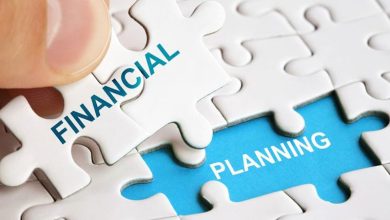How to Audit Your Personal Finances Like a CFO

How to audit your personal finances like a CFO is a transformative approach to managing your money with the same rigor and insight that top financial executives use in billion-dollar companies. This guide will show you, step by step, how to gain total control and clarity over your finances, set strategic goals, and make smarter decisions for your future.
Introduction: Why Audit Your Personal Finances Like a CFO?
How to audit your personal finances like a CFO means applying the same discipline, analysis, and strategic thinking that a Chief Financial Officer uses to manage a company’s finances. This process gives you a clear, unbiased view of your financial health, helps you spot problems early, and empowers you to make confident decisions for your future.
Benefits include:
- Full visibility into your income, expenses, debts, and assets
- Ability to set realistic, achievable financial goals
- Early detection of wasteful spending or financial risks
- Greater confidence and less financial stress
You can ask the same for your household.
Why Audit Your Personal Finances?
- To know where every naira/dollar goes.
- To cut wasteful spending.
- To spot debts before they get worse.
- To plan for emergencies.
- To reach savings and investment goals faster.
- To reduce money stress.

Key Features of a Personal Finance Audit
- Comprehensive review: Covers income, expenses, debts, assets, investments, and goals.
- Objective analysis: Looks at facts, not feelings.
- Action-oriented: Results in a clear plan for improvement.
- Repeatable process: Can be done regularly for ongoing improvement.
- Customizable: Adapts to your unique financial situation.
Step-by-Step Guide: How to Audit Your Personal Finances Like a CFO
Step 1: Gather and Organize Financial Documents
- Collect bank statements, credit card bills, loan documents, investment statements, pay slips, tax returns, and receipts.
- Use folders or digital tools to keep everything in one place for easy access.
Step 2: Calculate Your Net Worth
- List all assets (cash, savings, investments, property, valuables).
- List all liabilities (credit card balances, loans, mortgages).
- Subtract liabilities from assets to get your net worth.
- Track this number over time to measure progress.

Step 3: Review and Categorize Income
- List all sources: salary, side hustles, dividends, rental income, etc.
- Calculate your total monthly and annual income after taxes.
Step 4: Analyze Expenses
- Categorize spending: housing, utilities, food, transportation, entertainment, healthcare, debt payments, savings, and miscellaneous.
- Identify fixed vs. variable expenses.
- Spot patterns and areas for possible savings.
Step 5: Assess Debts and Liabilities
- List all debts, including amounts, interest rates, and minimum payments.
- Calculate your debt-to-income ratio.
- Identify high-interest debts to pay off first.
Step 6: Evaluate Savings and Investments
- Review balances in savings, emergency funds, retirement accounts, and investments.
- Check if your savings align with your goals.
- Assess investment performance and diversification.

Step 7: Set and Review Financial Goals
- Define short-, medium-, and long-term goals (e.g., emergency fund, debt payoff, home purchase, retirement).
- Use the SMART framework: Specific, Measurable, Achievable, Relevant, Time-bound.
- Write down your goals and action steps.
Step 8: Update Your Budget and Action Plan
- Adjust your budget based on your findings.
- Allocate more to savings or debt repayment as needed.
- Cut unnecessary expenses.
Step 9: Check Your Credit Score and Reports
- Request free credit reports from Equifax, Experian, and TransUnion.
- Review for errors and dispute any inaccuracies.
Step 10: Schedule Regular Audits
- Set a reminder to repeat this process every 3–6 months.
- Regular audits help you stay proactive and make timely adjustments.
Case Studies: Real-Life Personal Finance Audits
Case Study 1: The Debt Turnaround
A young professional with multiple credit cards realized through a personal finance audit that most of her income was going to interest payments. She consolidated her debt, set a strict budget, and paid off all cards in two years.
Case Study 2: The Overspending Family
A family discovered they were overspending on dining out and subscriptions. By tracking expenses, they cut unnecessary costs and increased monthly savings by 25%.
Case Study 3: The Investment Rebalancer
An investor found that her portfolio was too heavily weighted in one sector. After auditing, she diversified her investments, reducing risk and improving returns.
Case Study 4: The Emergency Fund Builder
A freelancer with irregular income used a finance audit to build a three-month emergency fund, giving him peace of mind during slow periods.
Case Study 5: The Credit Score Improver
After finding errors on his credit report, one individual disputed inaccuracies and raised his score by 60 points within six months.
Case Study 6: The Retirement Planner
A couple nearing retirement audited their finances, increased retirement contributions, and adjusted their investment mix for better growth and security.
Case Study 7: The Side Hustle Analyzer
A gig worker tracked all income streams and found that one side hustle was not profitable. She dropped it and focused on more lucrative opportunities.
Case Study 8: The Subscription Slayer
A student identified and canceled unused subscriptions, freeing up funds to pay off student loans faster.
Pros and Cons of Auditing Your Personal Finances
| Pros | Cons |
|---|---|
| Clear view of financial health | Can be time-consuming |
| Identifies wasteful spending | May reveal uncomfortable truths |
| Helps set and reach financial goals | Requires discipline and honesty |
| Reduces financial stress | Needs regular follow-up |
| Improves savings and debt management | Can be overwhelming if records are messy |
| Boosts credit score and borrowing power | May require learning new financial skills |
Tips for Auditing Your Finances Like a CFO
- Be honest and thorough—don’t skip any accounts or debts.
- Use spreadsheets or finance apps for easy tracking.
- Automate savings and bill payments where possible.
- Involve your partner or family for shared goals.
- Review your progress regularly and celebrate milestones.
- Don’t be afraid to seek professional advice for complex situations.
Frequently Asked Questions (FAQ)
- What is a personal finance audit?
A review of your income, expenses, debts, assets, and goals to improve financial health. - How often should I audit my finances?
Every 3–6 months or after major life changes. - What documents do I need?
Bank statements, credit card bills, loan documents, investment statements, pay slips, and tax returns. - How do I calculate my net worth?
Subtract total liabilities from total assets. - What should I do if I find errors on my credit report?
Dispute them with the credit bureau immediately. - How can I reduce my expenses?
Track spending, identify non-essentials, and cut or replace them with cheaper alternatives. - What is the best way to pay off debt?
Use the snowball (smallest first) or avalanche (highest interest first) method. - How much should I have in an emergency fund?
Aim for 3–6 months of living expenses. - How do I set financial goals?
Use the SMART framework: Specific, Measurable, Achievable, Relevant, Time-bound. - Should I use financial apps?
Yes, they make tracking and organizing your finances easier.
Example Table: Personal Finance Audit Checklist
| Audit Step | Action Item | Completed (Y/N) |
|---|---|---|
| Gather documents | Bank, credit, loans, investments | |
| Calculate net worth | List assets and liabilities | |
| Review income | List all sources | |
| Analyze expenses | Categorize and total | |
| Assess debts | List amounts, rates, payments | |
| Evaluate savings/investments | Check balances and performance | |
| Set/review goals | SMART goals and action steps | |
| Update budget | Adjust based on audit findings | |
| Check credit | Get reports and scores | |
| Schedule next audit | Set calendar reminder |

Conclusion
How to audit your personal finances like a CFO is about taking charge, being proactive, and making your money work for you. With the right tools, mindset, and regular reviews, you can achieve financial clarity, reduce stress, and reach your goals faster than you thought possible.




